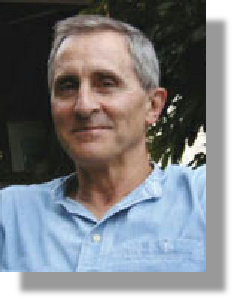


Half Moon Bay (Carcanet)
(Publ. in Ambit 144, 1996)
This collection is cosmic in scope and should leave us feeling naked and perplexed among the imponderables of time and space.
Can there be such a universe,
and how is it that I observe it ?
he asks in The Donkey, suggesting that any interpretation of our surroundings is doomed to limits; typical of many needless, pointedly didactic questions or bald reinforcements that intrude in speculative poems where the images are often evocative. There are moments too when he's almost bathetically portentous about the voids of time. He says of the flat stones in Landscape:
Their gravity is a phase
and future tracks of the earth
may not return, as now
in the same circle.
He might well convince us that science has shrunk our stature if he pounded us with less detail, rashes of double adjectives and 'big' words in a headlong, staccato mode which makes for confusion rather than awe, and verges on inflated obscurity. Fathom out this pause for thought in the title poem:
The sea from the wharf is rich with ghost-
of anchovy shoals, all present
in a calm drift of abundance
in hot twilight, and by their fire
in chanted songs, the soft edge of the future. In
these colourful, ruminative travel poems, and in his more intimate, domestic reflections,
he seems anxious to show how hard it is to express himself and flings out copious
jottings to cover every ripple and crevice. The highly commended Alex Kidd sequence
implies that technology can process our imagination; but the adventures of the unsmashable
software hero in angular syllabics are well-
A latterday Thom Gunn with less technical range, Mills is, like him, readable and moving when he stops talking and listens to the substance of his impulses. Stillborn poems are stuck in the strata of his landscapes; and memorable pieces like The Scream, The Human Image in Space and A New Age (forgive the titles!) are crafted and succinct. Here I was coaxed and intrigued into pondering for myself the very mysteries he'd stifled elsewhere.
Paul Mills